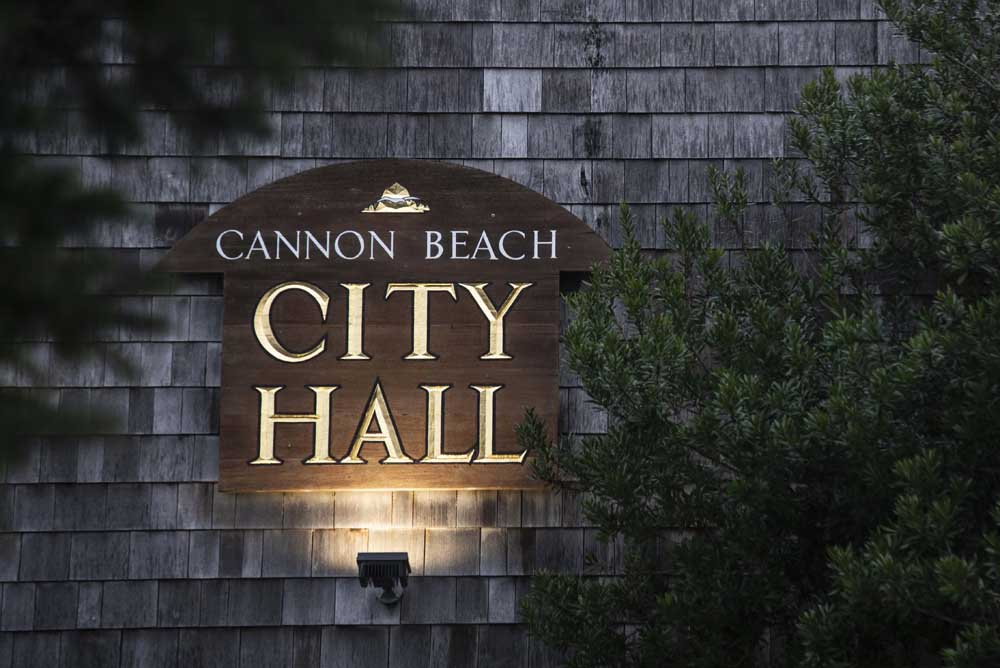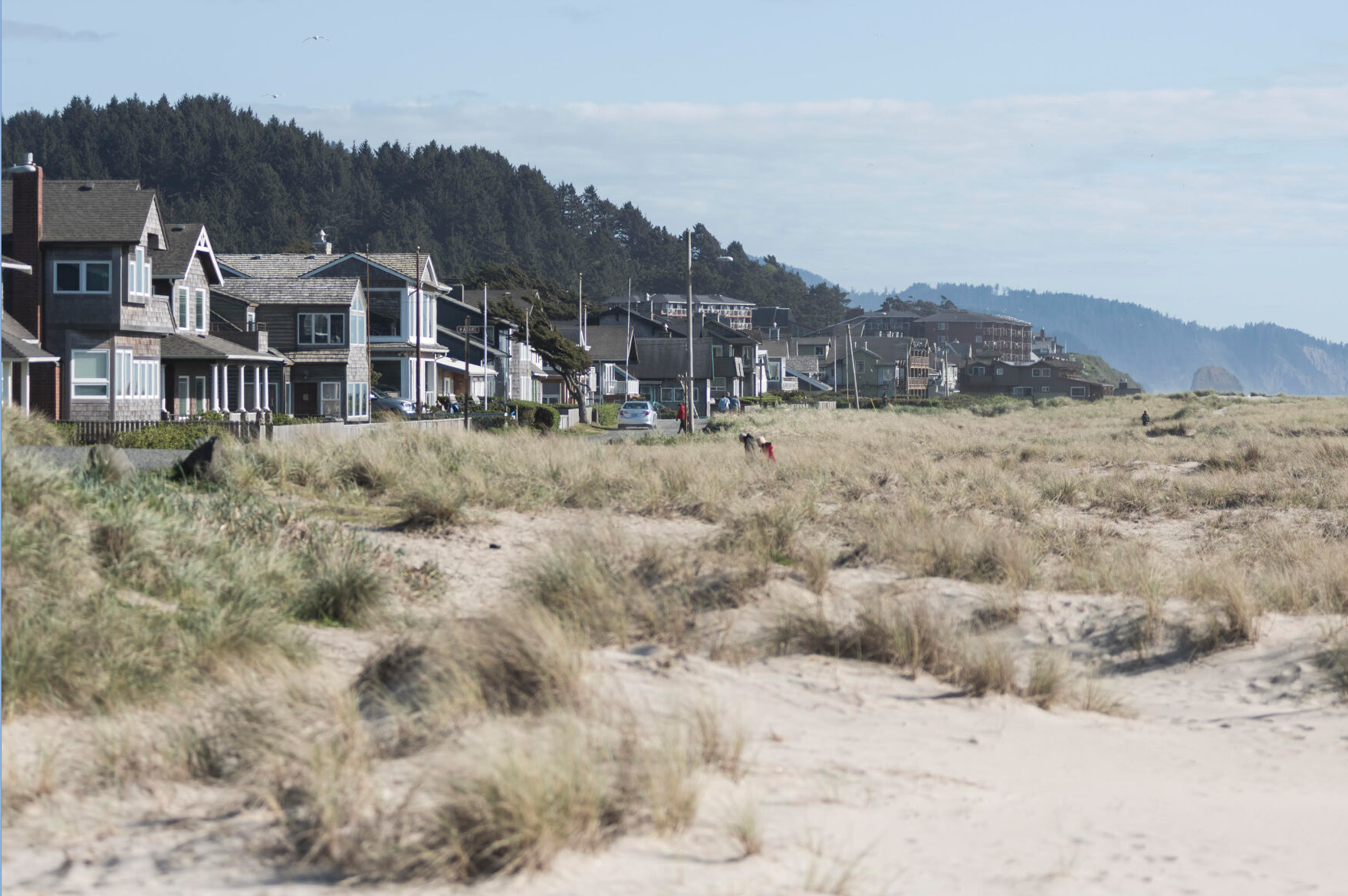Behind the News: ‘This feels like the last option’
Published 12:30 am Saturday, May 25, 2024

- Voters in Cannon Beach chose two new city councilors in the November election.
Cannon Beach Together formed in April to challenge the City Council’s decision to move forward on a $33.6 million bond for a new City Hall and police station and the redevelopment of a former elementary school.
Trending
The political action committee describes itself as a community watchdog for prudent and fiscally responsible governance. The main goal is to force a vote on whether the city should issue the bond.
The city maintains that the full faith and credit obligation bond does not require a vote, while Cannon Beach Together believes it is a revenue bond that should go before voters.
A Circuit Court judge is expected to hear legal arguments in late June.
Trending
The City Council has characterized the legal challenge as an attempt by a small group in the community to delay or obstruct projects years in the making.
In an interview via Zoom, Deanna Hammond, of Cannon Beach Bakery, and Randy Neal, who retired after a career in finance, spoke about the reasons behind Cannon Beach Together and their concerns about the city’s approach to the bond.
Q: Cannon Beach has worked toward a new City Hall and police station and the redevelopment of a former elementary school for several years. There were many opportunities for public input before the City Council agreed to move forward on the $33.6 million bond to finance the projects. Why do feel you were not heard?
Hammond: There was a good deal of public input regarding what citizens like to see in the build on these projects. But there was never any community involvement regarding the cost. Everyone, even Mayor (Barb) Knop, was shocked when the staggering cost revealed months later. With a price tag of $35-plus million, not including interest, for all three projects the community should be allowed to have a voice.
The only way to give all the people a voice is to allow them to vote on the funding.
Q: A Circuit Court judge will soon decide whether a full faith and credit obligation bond is the type of bond that should go before voters. I’m not a lawyer — I don’t believe either of you are — so I will sidestep the legal question. But there is a political question: Why shouldn’t the City Council be trusted to make this decision?
Neal: This is the largest debt issue that the city, by far, has ever done. Basically, it’s been $5 million every five or seven years, or something like that, this is $30, almost $40 million.
We believe there is a pretty wide range of opinions throughout the city. The prepared food tax was very close (in 2021), but we got through it. Basically, this one really should get back to the people to decide: Is this what we really want?
Like we said, we hadn’t really been heard in terms of the cost question before. So this feels like the last option.
Q: Voters elected the City Council. Erik Ostrander — whose wife brought the legal challenge to the bond — lost a campaign for mayor in 2022. Deanna, you ran for City Council in 2022 and lost. If I recall, the city’s financial burden was a theme in those campaigns. So haven’t the voters chosen their leaders?
Hammond: Setting myself aside from that — I’ve only been in town for six years, so I’m not known. But Erik only lost that vote by (30) votes. The food tax was only passed by six votes.
So the town is very divided.
I think that a lot of campaign speeches were made in order to be elected, and, as we know how that goes with campaign speeches, a lot of times those things that are promised don’t come to fruition.
Q: There are some parallels between the debate in Cannon Beach and recent bond measures in Gearhart and Astoria. Voters rejected a $14.5 million bond for a new firehouse in Gearhart in 2022. Voters approved an $8 million bond to help finance a $10.7 million renovation of the Astoria Library in 2022. The key difference, though, was that those bonds involved increases to property taxes. The path the City Council took in Cannon Beach avoids a tax increase. Why is that not preferable?
Neal: The Cannon Beach property tax base is pretty low, so $40 million projects like these would be a drastic impact.
Part of what’s going on here is we are doing tourism kinds of support, so (the projects) probably weren’t appropriate for a property tax.
But that doesn’t mean that they’re still not appropriate for a vote. Basically, anything that touches property tax is that general obligation bond. And we believe the statute says anything else is a revenue bond, and the revenue bond has a path to a vote.
Q: So if we play this out, and the Circuit Court rules that there should be an opportunity to vote on the bond, and voters reject the bond, what would you have the city do? No new City Hall and police station? No redevelopment of the elementary school? Start over on the projects? Something else?
Neal: I’ll give you my personal opinion, and that is, it’s not so much what we want, it’s what the city can pass by the voters.
Everybody has a slightly different opinion on what should be done. But the reality is the city went down a path to push $40 million, and it really has to be the city to decide what’s the appetite here and how do we want to solve that and maximize it with the voters.
Hammond: I agree with Randy. We don’t not agree with these projects. We don’t agree with the price.
So the price could be brought down considerably on everything. Granted, it takes away some of the really pretty things. But we need these things. We want a community center …
I think the police station — and I think we all agree — is the most important thing that gets done out of all of this first.
Neal: A lot of cities do a lot of giant bonds — the (Oregon) Zoo just passed one yesterday or day before. When the zoo passes one of these huge bonds, the zoo doesn’t go through and try to update all of their exhibits all at the same time. They’re phased over time. Some are updates. Some are total revamps.
Likewise with school projects and things like that.
We’re trying to cram all of these things at the same time and there’s going to be impacts.
Hammond: It will be catastrophic for town if all three of these projects go through at the same time.
They’re relying on these funds, but if they shut our whole city down for 12, 18, 24 months because they are using all of the parking and all of the things to house themselves while they’re doing these projects, we aren’t going to have visitors.
We already have a parking problem here, right? So that will have a huge impact.
And then where does that go? They can say all they want about not going to the property owners for more money, but they could.
Neal: There’s actually four projects. At the same time the city wants to do these three things, it’s also undergoing a total revamp of its water system that is about to kick off at the same time.
So it’s not three big projects, it’s actually four giant projects.









